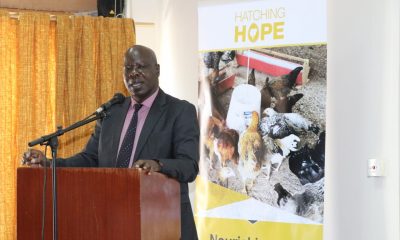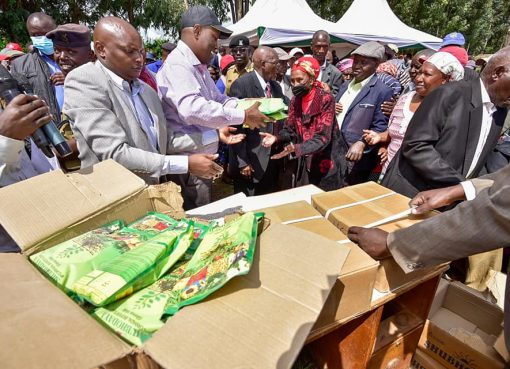Agriculture and Livestock Development Cabinet Secretary Dr. Andrew Karanja has promised sweeping reforms in the tea sector that support the livelihood of more than 834,129 farmers in the country.
In the recent past, the sector has been grappling with the challenge of unsold tea that has been stored in Mombasa warehouses.
The unsold stock, which was initially at 100 million kilogrammes, has now been reduced to 70 million kilogrammes, amid concerted efforts to clear it by the end of September.
The CS said that some of the successes in the tea sector can be attributed to favourable weather and government intervention through the fertiliser subsidy programme.
However, he added that timely absorption of tea is being affected by the current economic recession facing some of the major and critical markets, such as Pakistan, Egypt, and Sudan.
Karanja noted that as a result of the fertiliser subsidy programme, tea production for the half-year period of 2024 was 321.09 million kilogrammes, up from 273.64 million kilogrammes recorded during the same period of the year in 2023.
This year, the CS said they expect to surpass the high production for last year by eight per cent, adding, “We are going to have one of the highest productions in tea. That is one of the issues that is creating a bit of a problem in terms of stock.”
“It’s anticipated that by the end of this year the tea industry is going to bring more than Sh2 billion,” said Dr Karanja, during a meeting with tea stakeholders at the East African Tea Trade Association (EATTA) offices, in Mombasa.
He further noted that preliminary analysis indicates that in the Financial Year (FY) 2023/2024, the average payments to the smallholder tea farmers will increase to about Sh 66 per kg of greenleaf from Sh59.02 in the FY 2022/2023 and Sh50.18 in the FY 2021/2022.
“We have realised that we have some old stocks which we need to clear, and one of the bottlenecks, which is happening to make sure that it’s not cleared is the reserve price. We are suspending that reserve price for the old stock,” declared Dr. Karanja.
Subsequently, a committee will be constituted to look at the reserve pricing to make sure it doesn’t remain static and create problems.
At the same time, to address challenges of low quality, the ministry will come up with measures to have a minimum standard of quality.
The CS revealed that the country has started to produce orthodox tea for specialised markets like China.
“We are going to put up structures to make sure that the orthodox tea is sold through an auction. We may create another second auction to sell our orthodox tea,” said the CS.
Karanja said they have noted certain unethical trade practices and collusion in the trade; thus, the government will put in place measures to stop this malpractice as it compromises the earnings of the farmers.
“We have requested the Tea Board of Kenya to look into the matter and expose all those who may be colluding with some of the directors or the entire system, resulting in unfair prices. If anybody is caught, we will revoke the license,” he warned.
He further added that the government is accelerating efforts in marketing tea to increase demand through new markets.
Speaking at the same function, Agriculture Principal Secretary Dr. Paul Ronoh assured farmers that the government is committed to solving all challenges facing the tea sector, even as he put on notice unscrupulous business persons hindering the tea trade.
On his part, Kirinyaga Senator James Murango, who also chairs the Senate committee on Agriculture, Livestock, and Fisheries, said they want to find solutions to the biting challenges in the tea sector.
“For a farmer to reap maximum benefits, the entire process of how tea is grown and sold must be streamlined,” he stated.
The Senator called for a re-look at the tea payments made starting from the farms to the Mombasa Auction, and a possible reduction in warehouse charges, taxes, and equipment used for tea production so that farmers can reap maximum benefits.
“I want to assure farmers that they will see an improvement. The government will streamline tea farming to make it an agribusiness venture and not just farming,” he assured.
By Sadik Hassan





